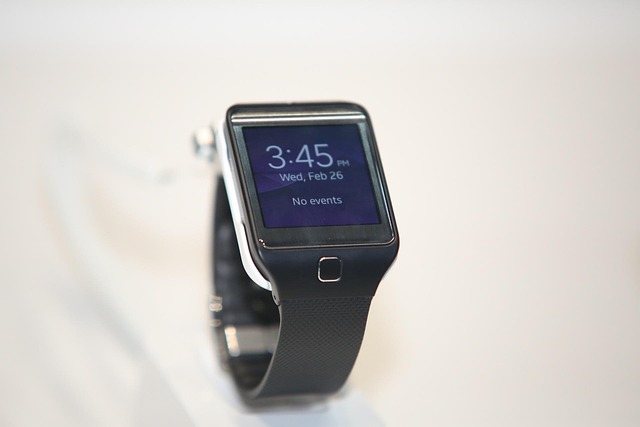Selecting Smart Car Tech in today's digital era demands balancing innovation with enhanced security. Connected cars offer improved navigation and charging infrastructure but introduce new vulnerabilities. Automakers must prioritize robust encryption, secure communication, and regular security updates to protect vehicle systems and driver profiles from cyber threats. Implementing strong security measures, multi-layered defense, real-time performance tracking, and safe driving incentives through Select Smart Car Tech is crucial as connected cars become more widespread. User awareness, using strong passwords, enabling encryption, and being cautious of unknown apps are essential to prevent hacking. The automotive industry shifts towards connectivity with advanced security solutions led by Select Smart Car Tech.
In today’s digital age, connected cars equipped with advanced technology offer unparalleled convenience. However, these vehicles also present unique vulnerabilities, making them potential targets for hackers. This article delves into the crucial aspects of connected car hacking prevention using smart car tech. We explore strategies like understanding and mitigating vehicle vulnerabilities, implementing robust security measures, fostering user awareness, adopting future technologies, and more. By embracing these best practices, drivers can ensure their smart cars remain secure in a rapidly evolving digital landscape.
- Understanding Connected Car Vulnerabilities
- Implementing Robust Security Measures
- User Awareness and Best Practices
- Future Technologies for Enhanced Protection
Understanding Connected Car Vulnerabilities

In today’s digital era, selecting smart car tech involves a delicate balance between innovation and security. Connected cars, equipped with advanced features like over-the-air updates, voice control, and real-time navigation, offer significant route efficiency improvements and enhance electric vehicle charging infrastructure as well as hybrid technology advancements. However, these functionalities also introduce new vulnerabilities that hackers can exploit to gain unauthorized access. Understanding these weaknesses is paramount for developing robust security measures to protect both the vehicle’s systems and the driver’s personal data.
Smart city integration further complicates matters, as connected cars communicate with various urban infrastructure components like traffic lights and parking sensors. Additionally, personalized driver profiles storing preferences and location histories can be lucrative targets for cyberattacks. Consequently, automakers must prioritize cybersecurity alongside performance and convenience, implementing stringent encryption protocols, secure communication channels, and regular security updates to safeguard against evolving hacking threats.
Implementing Robust Security Measures

As connected cars become increasingly prevalent, implementing robust security measures is more critical than ever. Select smart car tech should incorporate multiple layers of defense to protect against potential hacking attempts. Encryption protocols, secure communication channels, and regular software updates are essential components in this arsenal. By integrating real-time performance tracking features, automakers can monitor and respond swiftly to any suspicious activities, enhancing the overall security posture.
Moreover, enabling remote vehicle access should be done with extreme caution, adhering to strict identity verification processes. This technology offers convenience but also opens a potential vector for attackers. Additionally, as public charging networks expand, ensuring secure data transmission during charging sessions is crucial. Integrating car insurance based on usage can incentivize safe driving behaviors while providing an extra layer of protection against cyber risks, fostering a safer connected car ecosystem.
User Awareness and Best Practices

User awareness plays a pivotal role in preventing connected car hacking. With the increasing integration of smart technology into vehicles, users must be educated about the potential risks and benefits. Understanding how various features like traffic jam assist, blind spot detection sensors, and smart parking assistance work is essential. This knowledge equips individuals to make informed decisions when selecting smart car tech, ensuring they choose reputable manufacturers with robust security measures in place.
Adopting best practices for safe driving while leveraging smart home integration can significantly enhance overall security. Regularly updating software patches and using strong, unique passwords for each connected device are fundamental steps. Additionally, enabling encryption for all communication channels and being cautious of unknown or suspicious apps claiming to interact with car systems are wise precautions. Such proactive measures not only safeguard personal data but also contribute to a safer driving experience by leveraging the advanced capabilities of modern vehicle technology.
Future Technologies for Enhanced Protection

As the automotive industry continues to embrace connectivity, future technologies are being developed with enhanced security at their core. The implementation of Select Smart Car Tech is pivotal in fortifying vehicle systems against potential hacking threats. These advanced solutions not only offer customizable driving modes, allowing drivers to personalize settings for optimal performance and efficiency, but also integrate robust cybersecurity measures.
Furthermore, features like Traffic Jam Assist, designed to automate tasks during congested driving conditions, are being secured through intricate encryption protocols. Additionally, the push towards low-emission vehicles necessitates secure communication between hybrid or electric components and central control units. These future technologies ensure that while cars become smarter and more interconnected, they remain protected from digital intruders.
As we look towards a future dominated by connected cars, implementing robust security measures is paramount. By understanding the unique vulnerabilities of these vehicles, adopting advanced technologies like Select Smart Car Tech, and fostering user awareness, we can create a safer digital landscape on wheels. Continuous innovation in hacking prevention will ensure that drivers remain in control, protecting their personal data and driving experience from potential threats.
